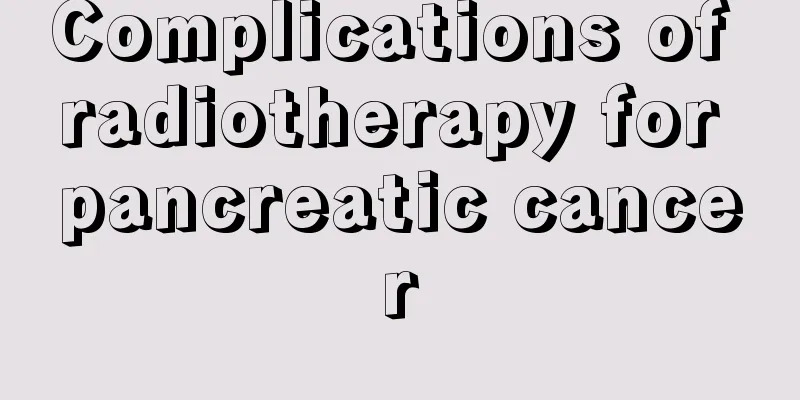What are the early symptoms of nasopharyngeal carcinoma

|
People today have a certain understanding of nasopharyngeal cancer. When treating nasopharyngeal cancer, it is necessary to use the medicine correctly. The following editor will introduce to you what the early stage of nasopharyngeal cancer is like. Nasopharyngeal carcinoma is one of the most common tumors in my country, with Guangdong, Guangxi, Hunan, Fujian and other provinces being the most common areas. The incidence rate in men is 2 to 3 times that in women, and the most common age group is 40 to 50 years old. Due to the hidden anatomical location of the nasopharynx, the early symptoms of nasopharyngeal carcinoma are atypical, and diagnosis is easily delayed clinically, so special vigilance should be exercised. The early symptoms of nasopharyngeal carcinoma are specific. Here are some relevant information: Blood in the nose: Blood in the nose is an early symptom of nasopharyngeal carcinoma, which manifests as blood in the nose or blood in the nose when sucked back from the mouth, also known as blood in the sputum. Blood in the nose often occurs after getting up in the morning. When the amount of blood in the nose is not large, it is often neglected by patients and mistaken for rhinitis or sinusitis, or is treated as hemoptysis in the internal medicine department. Nasal congestion: Nasal congestion is another early manifestation of nasopharyngeal carcinoma. Most cases are unilateral. When the nasopharyngeal tumor grows, bilateral nasal congestion may occur. Tinnitus and hearing loss: Tinnitus, stuffy ears and hearing loss are also early signs of nasopharyngeal carcinoma. This symptom is caused by the nasopharyngeal carcinoma neoplasm blocking the Eustachian tube opening on the affected side. Hearing loss may also be caused by further deterioration of nasopharyngeal carcinoma and damage to the auditory nerve. Tinnitus and hearing loss are often misdiagnosed as otitis media or other diseases, which delays treatment. Headache: When nasopharyngeal carcinoma is first diagnosed, about 70% of patients have headache symptoms. The headache symptoms of nasopharyngeal carcinoma often manifest as migraine, pain in the back of the skull or neck. Nasopharyngeal carcinoma headaches are mostly related to cancer tissue invading the skull base bones, nerves and blood vessels. Through the above introduction, patients can understand the early symptoms of nasopharyngeal cancer more clearly. |
<<: What does interventional treatment for lung cancer mean
>>: How to treat ascites in advanced ovarian cancer
Recommend
What to do if a patient with endometrial cancer becomes pregnant
Pregnancy and childbirth are sacred and great thi...
Knowledge collection for gastric cancer diagnosis
Gastric cancer must be differentiated from gastri...
Symptoms and common signs of mediastinal malignant tumors
Generally, benign mediastinal tumors have no symp...
What are the harms of long-term sitting to women?
Sitting is a way for people to rest, because it a...
Oral ulcer with white tongue coating
Generally speaking, there is not much connection ...
What are the early symptoms of prostate cancer
In recent years, prostate cancer has become one o...
What are the 11 methods to remove formaldehyde?
Formaldehyde is a colorless gas that is extremely...
What are the effective ways to improve hunchback?
There are many reasons for hunchback. In addition...
How to determine whether a sprained ankle is a fracture
Everyone will feel very uncomfortable after sprai...
Does early stage bladder cancer surgery require chemotherapy?
Because some bladder cancers are at a later stage...
Can colon cancer be cured
Intestinal cancer is mainly caused by emergency i...
What is the correct way to apply apple on the face?
Apple is the most common fruit. Most people have ...
What's wrong with sore throat and neck?
The vocal part of the human throat is called the ...
What should liver cancer patients pay attention to in their diet? Revealing the four dietary precautions for liver cancer
When it comes to cancer, everyone will shudder. T...
How to take good care of women with ovarian tumors
Ovarian tumor is one of the three major malignant...









